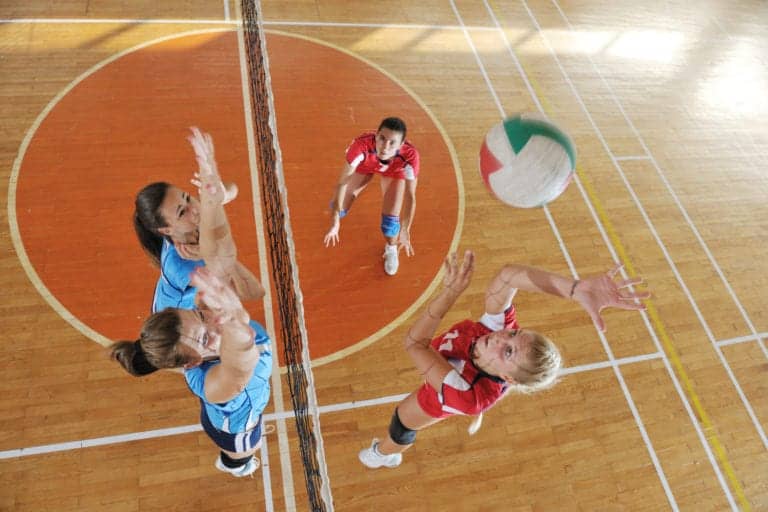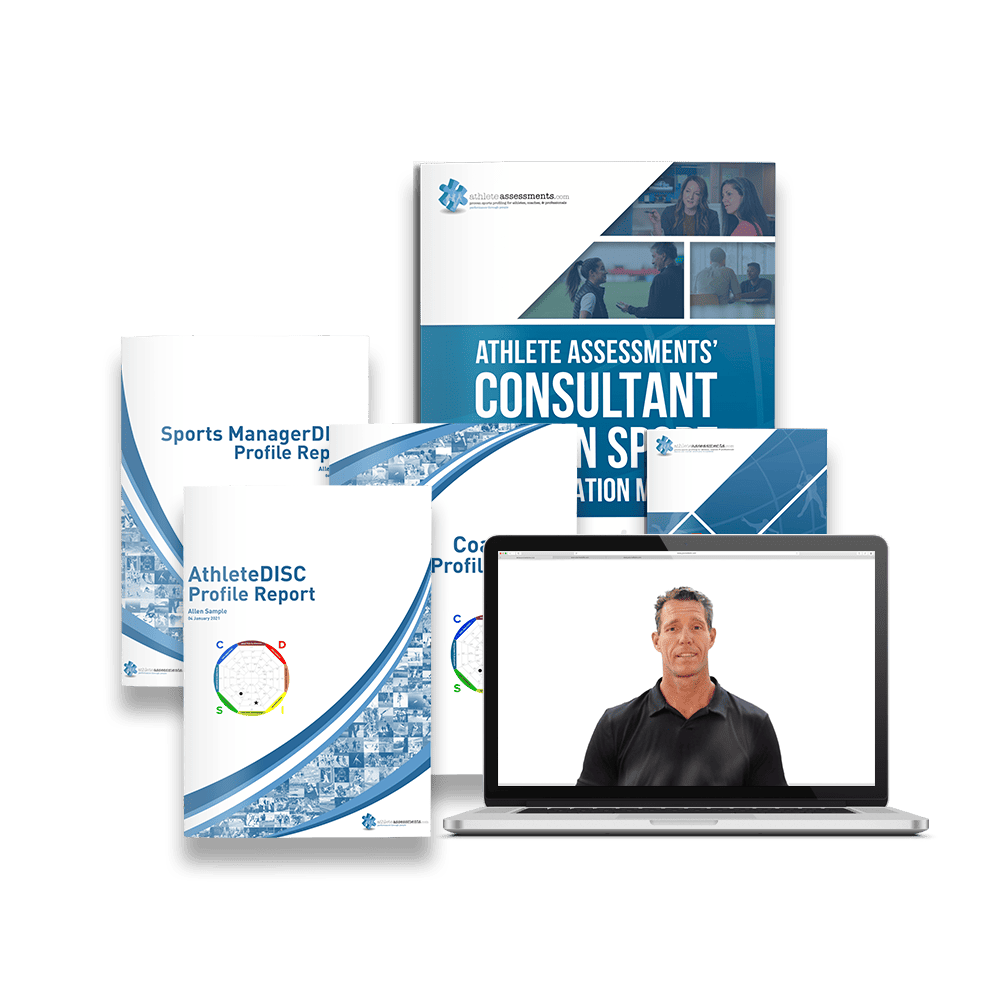The idea of career transition can be a daunting thought, but hearing the insightful experiences of those who have courageously forged their path through uncertainty is nothing short of inspirational. As an expert in the field of leadership who undertook a career transition of her own, we sat down with Erin Glaser to learn more about the path that lead her from Volleyball Coach to Leadership Consultant.
Elaborating on her career journey so far, Erin shared that after she graduated with a Bachelor’s degree in Art History from Wesleyan University, she was initially set on a career in museum education. As a four-year student-athlete and captain of the Wesleyan Cardinals Volleyball Team, Erin’s post-playing career instead transitioned into coaching, seeing her take on the role of Assistant Volleyball Coach position at Connecticut College. Two years later, Erin accepted the Head Coach role at Hamilton College, through which she became heavily involved on campus and discovered a love for helping people uncover and develop their leadership potential.
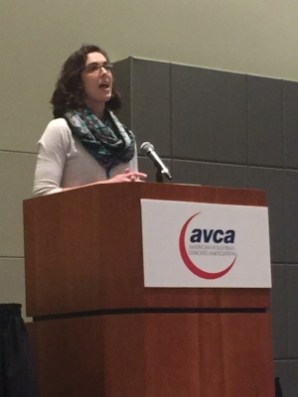
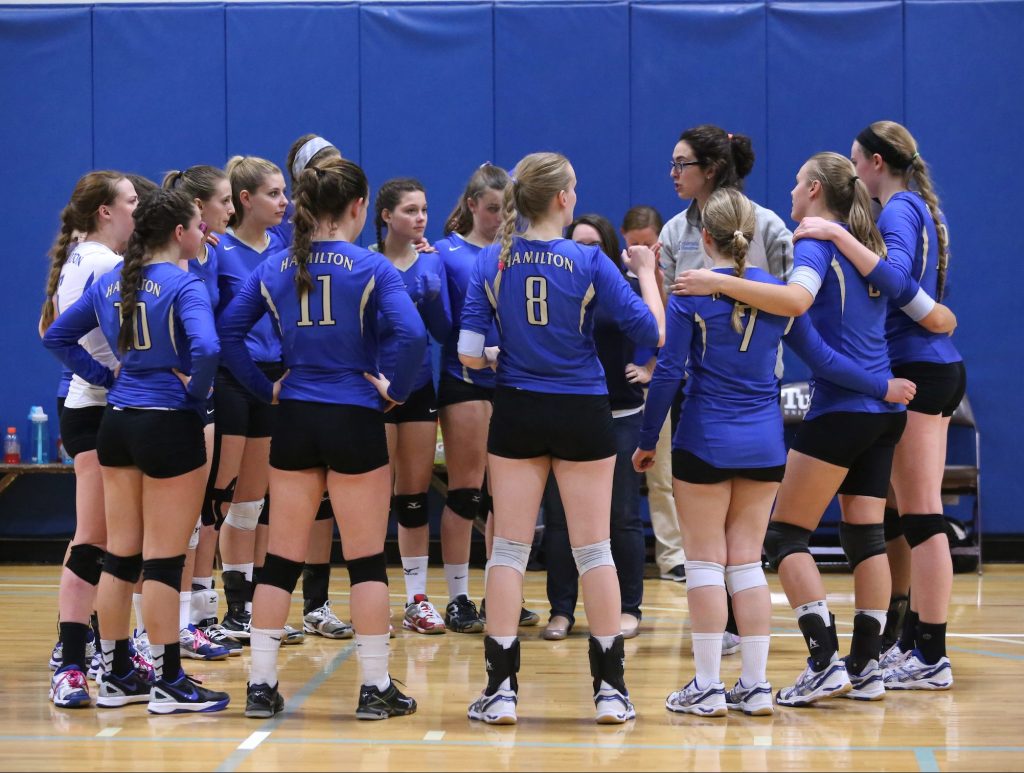
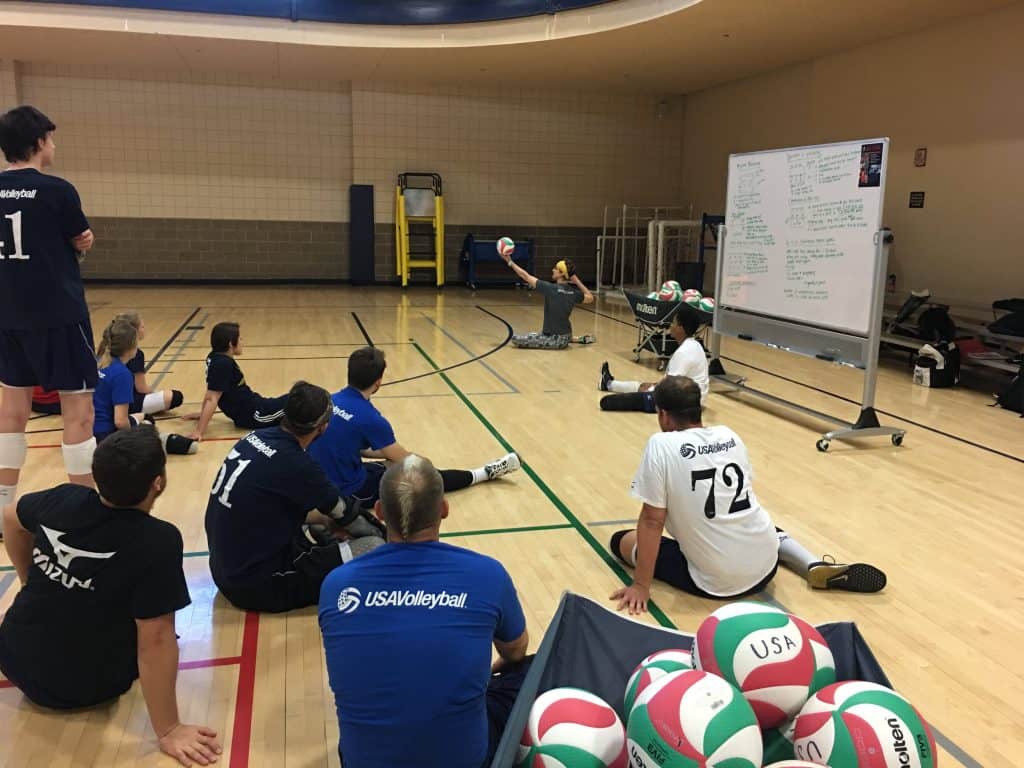
After more than a decade of success as a volleyball coach, Erin’s career path shifted focus in 2014, after the birth of her first daughter and her family’s relocation to Philadelphia.
Reflecting on that moment of change Erin shared,
“All of a sudden, I wasn’t a coach anymore and I didn’t know what else I was going to do. But we know unexpected events often have a critical role to play in our lives. They ultimately provide us with the opportunity to develop and reapply skills to a different avenue of life, which was what I did.”
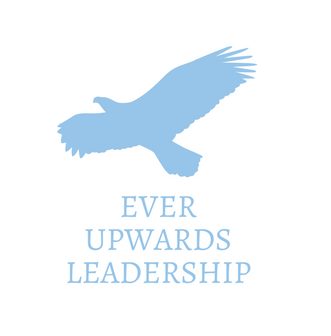
Honing in on her passion for leadership development, Erin built on her knowledge of DISC Profiling and cemented her foundational understanding with formal training through Athlete Assessments’ Consultant Program to become DISC accredited. From there, Erin established her consultancy, Ever Upwards Leadership.
Sharing more on her career transition Erin said,
“Making the career change I did really made sense because, it was essentially just coaching and helping people figure out what they want to do and how they want to get there.”
Elaborating on what she considers to be an important shift in the way we think about coaching and developing people, Erin highlighted, “Sometimes people get really caught up in the theory and what you need to know, but it’s really about what you need to do. Then you also need to make it fun! I think sometimes in the corporate space, people forget that.”
Reflecting further on the journey that brought her to where she is now, Erin shared,
“I feel fortunate to be in so many different industries and spaces because it has shown me the universality of good coaching. No matter where you go, it’s pretty much going to be the same types of problems and the same types of solutions. Even if it looks slightly different because you’re in a different space.”
Through her consultancy, Ever Upwards Leadership, Erin’s extensive experience sees her called on to design and facilitate workshops that develop leadership skills for a range of people including college teams, students from diverse disciplines, as well as corporate teams engaged in industry.
Elaborating on the diverse range of groups and teams she works with, Erin highlighted,
“There is often a misalignment of expectations and communication, in sport it’s between coaches and athletes and sometimes between teammates themselves. In the corporate setting it might be just that the team wants to improve their communication with each other, across teams or with their clients.”
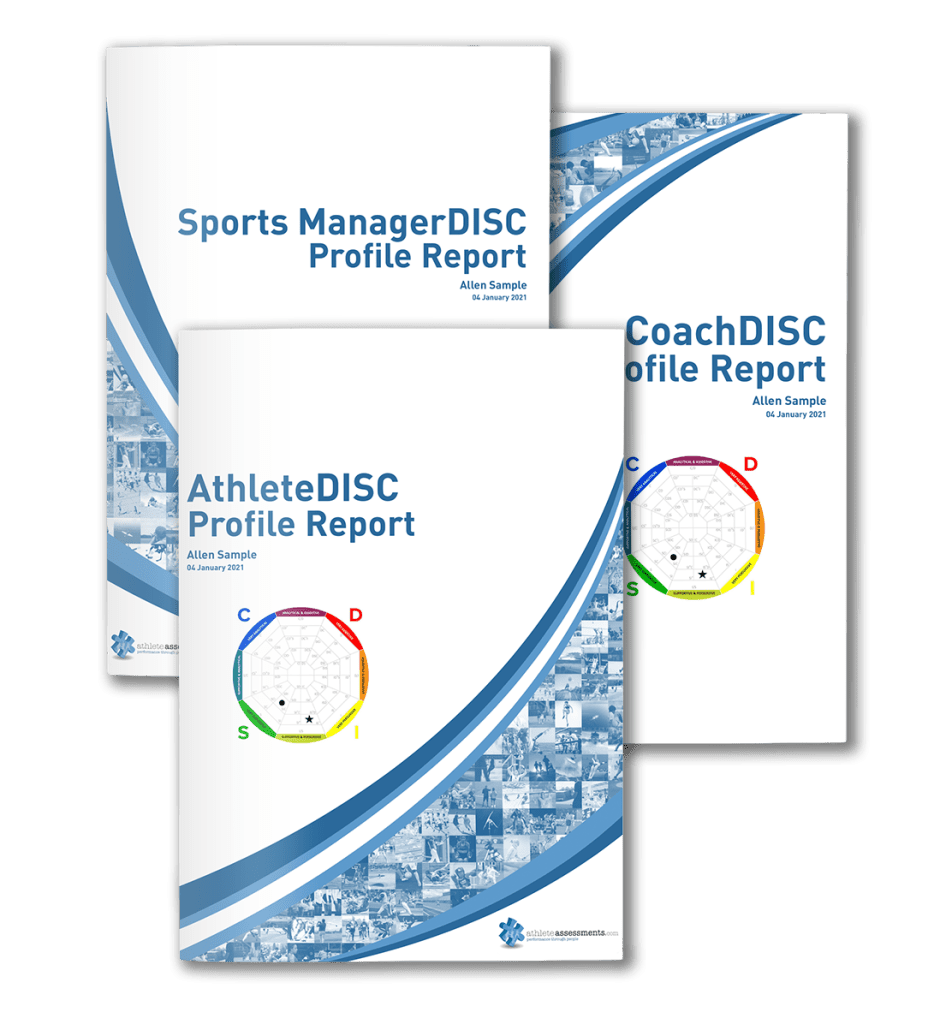
While each leadership workshop is individually tailored to the needs, goals, and nature of each team, Erin explains that self-awareness forms the foundation of personal development and thus, is what her approach to leadership is underpinned by.
Naturally, Erin asks each person to complete an Athlete Assessments DISC Profile. For athletes, the subsequent AthleteDISC Profile report details the way their behavioral preferences influence how they practice and compete.
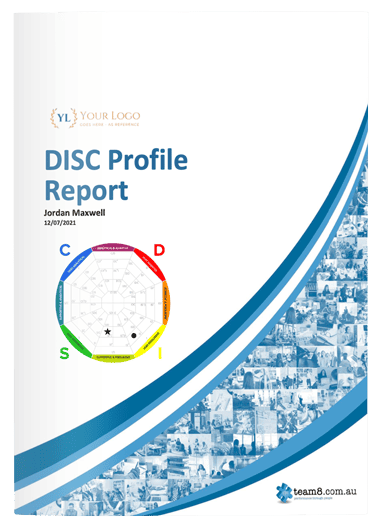
With those engaged in business and industry Erin utilizes the Team8 DISC Profile, which effectively illustrates the impact an individual’s DISC Behavioral Style has on the way they perform in their current role. The Athlete Assessments and Team8 DISC Reports also provide insight into the unique attributes of each individual; their strengths, motivations, preferred pace, communication style, and the way they approach tasks as well as build relationships with the people around them.
Erin shared that her clients’ reactions to their DISC Profile results are overwhelmingly positive,
“Within the first hour of going through their DISC Profiles, people are already using the language and applying the knowledge. They’re having these little side conversations like, ‘What do you think so-and-so is, oh I bet they’re this!’.”
When debriefing their results, Erin shared that her clients are almost always ready to make necessary changes towards achieving better outcomes. Elaborating on this pivotal process she said,
“Because self-realization feeds into self-management, if you can really get people to have the moment of realization, it’s easier to bring in self-management and relationship-management tools.”
Erin explained that often these tools of self-management feed into one another, such as having the ability to assess a situation, and then adapt a behavioral approach to get the best outcome. Throughout our work at Athlete Assessments, we often refer to this concept through the use of the SBR Model which encourages individuals to first assess a Situation, before choosing the Behavior (here’s where the adaptation may need to come into play) that will give them the best Result. They then Evaluate the Result and learn from the interaction.
Using tools underpinned by similar theories to that of the SBR Model, Erin’s work with her clients essentially leads them to develop an acquired set of skills and knowledge, which they can utilize consistently to self-modulate and ultimately reach optimal performance.
Beyond the specifics of the sports landscape, Erin concluded that whilst environments may differ, people will still face the same common challenges. She shared,
“For coaches both in the corporate space and the athletic space, it often comes down to key communication skills; like what does it mean to have an effective coaching conversation with any individual, or provide constructive feedback to someone in a way that is going to best resonate with them?”
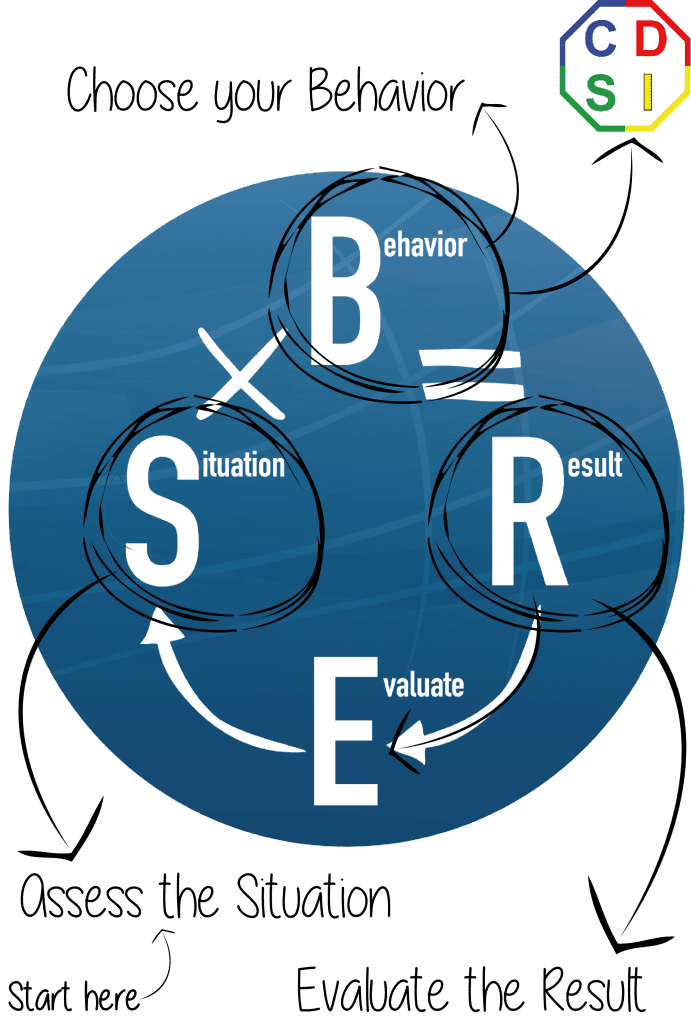
Erin explained that often these tools of self-management feed into one another, such as having the ability to assess a situation, and then adapt a behavioral approach to get the best outcome. Throughout our work at Athlete Assessments, we often refer to this concept through the use of the SBR Model which encourages individuals to first assess a Situation, before choosing the Behavior (here’s where the adaptation may need to come into play) that will give them the best Result. They then Evaluate the Result and learn from the interaction.
Using tools underpinned by similar theories to that of the SBR Model, Erin’s work with her clients essentially leads them to develop an acquired set of skills and knowledge, which they can utilize consistently to self-modulate and ultimately reach optimal performance.

Beyond the specifics of the sports landscape, Erin concluded that whilst environments may differ, people will still face the same common challenges, sharing, “For coaches both in the corporate space and the athletic space, it often comes down to key communication skills; like what does it mean to have an effective coaching conversation with any individual, or provide constructive feedback to someone in a way that is going to best resonate with them?”
Reflecting on the effectiveness DISC holds in managing conflict across various contexts, Erin highlighted,
“I do feel that whenever there is team conflict, disagreement, or maybe it’s a clash between certain people, applying DISC takes the negativity and the personal out of situations.”
Reflecting on her experience using the AthleteDISC with student-athletes, Erin shared how she often hears players reach conclusions such as,
“I didn’t realize how different I am from the teammate or coach I’ve been having a hard time with. This explains a lot of things that are going on.”
Concluding with her thoughts on the valuable application DISC Profiling has, Erin shared,
“DISC really makes a difference in everyday conversations. The language of DISC and the conversations it starts through the process of sharing profiles, noticing similarities and differences creates a safe space and language to share with others.”
Erin’s story is an inspiring reminder that skills learnt in one avenue are almost always applicable to the next. Additionally, the integration of valuable tools such as DISC Profiling, that aid in the development of self-awareness, can help us become better leaders in whatever our chosen endeavor may be.


Biography for Erin Glaser
Leadership and Team Development Consultant, Erin Glaser specializes in designing and facilitating workshops for student-athletes, coaches, sports administrators, as well as business consultants, professionals, and teams. Establishing her consultancy Ever Upwards Leadership in 2017, Erin is an accredited Athlete Assessments DISC consultant, which she obtained through Athlete Assessments’ Consultant Program. In addition to her consulting role, Erin is a Talent Development Program Manager at Veeva Systems, where she is tasked with the design and delivery of development programs for over 6000 people. Prior to this role, she was a Program Manager and Lead Educator for Coach Education Programs at Drexel University, before becoming Senior Co-op Advisor for Educational Enrichment. For two years during the start of her career, Erin was Assistant Coach Volleyball at Connecticut College, before accepting a Head Coaching role Coach at Hamilton College. Earning a Bachelor’s Degree in Art History from Wesleyan University, Erin then went on to obtain her Master of Arts in Liberal Studies at Sony Brook University, where she majored in Coaching. Additionally in 2021, Erin completed coursework in Drexel University’s Masters of Science in Instructional Technology.


Biography for
Erin Glaser
Leadership and Team Development Consultant, Erin Glaser specializes in designing and facilitating workshops for student-athletes, coaches, sports administrators, as well as business consultants, professionals, and teams. Establishing her consultancy Ever Upwards Leadership in 2017, Erin is an accredited Athlete Assessments DISC consultant, which she obtained through Athlete Assessments’ Consultant Program. In addition to her consulting role, Erin is a Talent Development Program Manager at Veeva Systems, where she is tasked with the design and delivery of development programs for over 6000 people. Prior to this role, she was a Program Manager and Lead Educator for Coach Education Programs at Drexel University, before becoming Senior Co-op Advisor for Educational Enrichment. For two years during the start of her career, Erin was Assistant Coach Volleyball at Connecticut College, before accepting a Head Coaching role Coach at Hamilton College. Earning a Bachelor’s Degree in Art History from Wesleyan University, Erin then went on to obtain her Master of Arts in Liberal Studies at Sony Brook University, where she majored in Coaching. Additionally in 2021, Erin completed coursework in Drexel University’s Masters of Science in Instructional Technology.
Where to from here?
If like Erin, people rely on you to be their best, you will want to meet their expectations by bringing them reliable and tested tools which will ultimately help them reach optimal performance.
At Athlete Assessments, we pride ourselves on the exceptional quality of our profiling tools and the support we deliver, which underpins the valuable contribution we make to each of our clients. If you are interested in exploring how DISC Profiling can help empower and get the best out of your people, or you would like to discuss our programs and services further, please don’t hesitate to reach out and contact us!
LOVE THIS ARTICLE?
DOWNLOAD YOUR FREE, PRINTABLE PDF COPY BY FILLING OUT THE FORM BELOW!
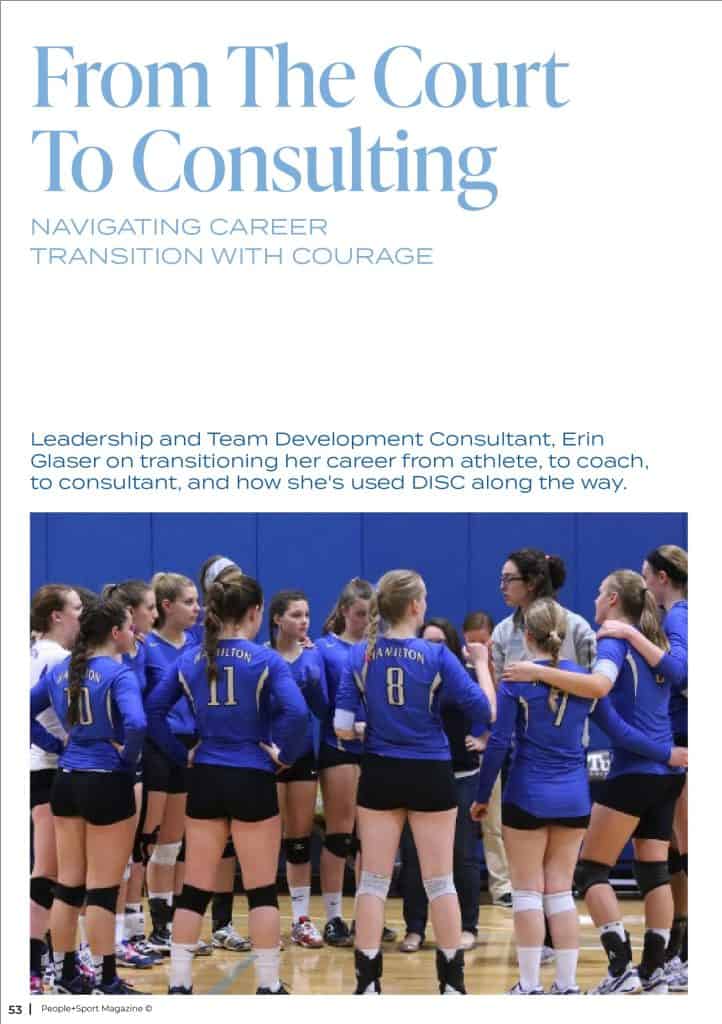
Recommended Articles
Having the capability to lead plays a critical role in this effectiveness, so how do we actually develop leadership across diverse populations, ensuring to include those who may be reticent or hesitant to take on a leadership role? Jacqueline Mueller, a leadership expert renowned for bridging the gap between theory and practice acknowledges there’s no effective ‘cookie-cutter’ approach for teaching leadership, but simply put she says, “I try to invite participants to reflect on themselves and to find a way of leading that works for them.”
An “all in” attitude sees Sport Psychology Consultant Becky Ahlgren Bedics use every piece of herself to ensure her athletes, Coaches and athletic administrators are the very best they can be. In this article we put the spotlight on one of the in-demand consultants we work with and share her insights into the critical link between personal growth and athletic performance. She reveals a common problem faced by student–athletes and divulges the invaluable advice she gives to rookies. Her own career trajectory will inspire and inform.
By Bo Hanson - 4x Olympian, Coaching Consultant & Director of Athlete AssessmentsTransitioning from Athlete to Coach requires significant coach development. Success as an athlete does not automatically translate to success as a coach.Recently we saw…



